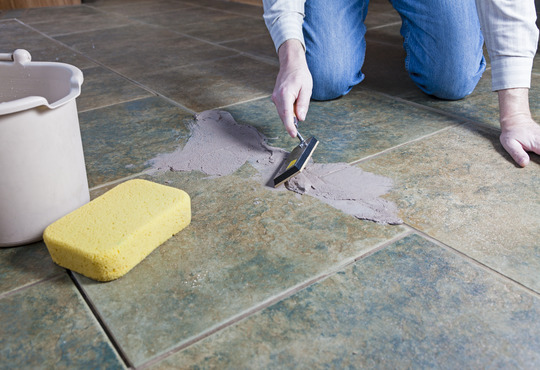Installing tiles involves an understanding of the differences in grout. You probably already know that grout itself is not a paver. It’s a material that is cement-based, and it is used to fill in spaces between tiles.
There are three types of grout that are used in tile installation: epoxy, sanded, and unsanded. So what are the differences in grout? It’s important to know so that you can complete the tiling job. Let’s take a look at the main differences in the types of grout available:
Sanded grout
This is the most common type of grout used for stone and ceramic tile, or any tile with bigger grout joints. Sanded grout is extremely absorbent, and if it is not sealed, it will soak up stains, dirt, and anything else that is spilled on the tile. Be careful about using sanded grout on polished stone such as granite, marble, or limestone, as it can scratch.
Unsanded grout
Unsanded grout is made for small grout lines, and it is like sanded grout except it doesn’t contain sand. It’s commonly called wall grout, and it is used on polished marble and ceramic tile. It is easier to work with than sanded grout, and is easier on your hands. It is especially useful on vertical surfaces such as a shower wall.
Epoxy grout
Epoxy grout is considered to be a top-of-the-line grout, and the best choice for the application of tile. It’s sturdier than sanded or unsanded grout, and needs no additional sealer. Epoxy grout is a waterless, two part grout made with epoxy resins and a hardener. Though they are the best choice, epoxy grouts are difficult to apply, and can be quite messy during application. Different brands of epoxy are more difficult to work with than others. Epoxy grout is the most expensive, but requires the least maintenance.
Taking the time to choose the right grout for your tile application is key in getting the job done correctly the first time around. Picking the wrong grout can result in many issues, so do yourself the favor of understanding grout’s power!

For all of your Denver Hardwood Flooring needs visit our site today.